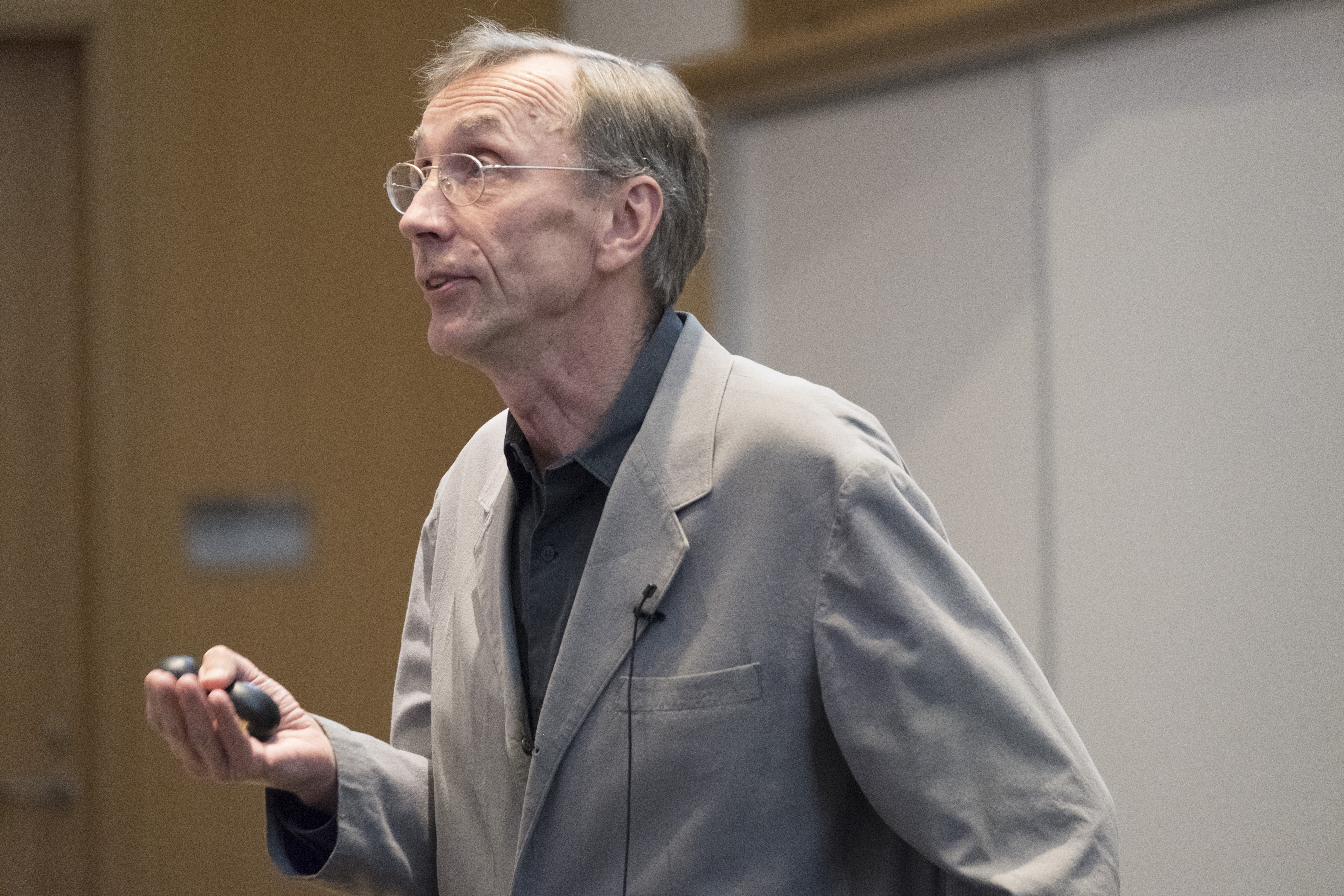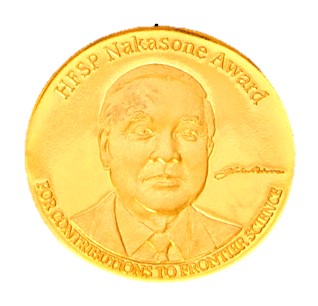Just four years earlier, the International Human Frontier Science Program (HFSP) recognized the groundbreaking work of Prof. Pääbo and awarded him the 2018 Nakasone Award. The HFSP Nakasone Award honours scientists who advance the frontiers of research in biology, encompassing conceptual, experimental or technological breakthroughs.

Svante Pääbo at the Nakasone Award ceremony in 2018.
“Prof. Pääbo deserves the highest recognition for his phenomenal work,” said HFSP CEO Pavel Kabat. “Not only did he reveal new insights into the ancient origins of human communities, but he pioneered new, highly precise techniques that have fundamentally changed how genetic research is done. Such high-risk, high-reward research is exactly the kind of science that HFSP supports.”
“Indeed, the caliber of research HFSP has supported in recent years is so high that I would say we are seeing the dawn of a new age in life sciences: the Century of Biology,” said Kabat. “In the last six years, four of our Nakasone Award winners have won Nobel Prizes for truly paradigm-changing science.”

HFSP Nakasone Medal
Svante Pääbo won the 2018 Nakasone Award for developing techniques for sequencing DNA from fossils, discovering a previously unknown early group of hominids, the Denisovans, and explaining how they inter-related with Neanderthals. This provided a very different insight into early communities and yielded new information about how different people experience immunity from disease differently. He won the 2022 Nobel Prize in Medicine for his work.
Previously, David Julius won the 2017 Nakasone Award for his discoveries of molecular mechanisms that explain how we perceive pain and temperature, which has been invaluable in understanding how natural products and drugs address pain. Prof. Julius won the 2021 Nobel Prize in Medicine with Ardem Patapoutian.
Jennifer Doudna and Emmanuelle Charpentier won the 2016 Nakasone Award for their work on CRISPR/Cas9 genetic editing and were also honoured with the 2020 Nobel Prize in Chemistry.
The Human Frontier Science Program was founded in 1989 to advance international research and training at the frontier of the life sciences. Its aims are to promote intercontinental collaboration and training in cutting-edge, interdisciplinary research focused on the life sciences. HFSP receives financial support from the governments or research councils of Australia, Canada, France, Germany, India, Israel, Italy, Japan, the Republic of Korea, New Zealand, Singapore, Switzerland, the UK, the USA, as well as from the European Commission. With its collaborative research grants and postdoctoral fellowships, the program has issued over 4,500 awards involving more than 7,500 scientists from all over the world. Since the beginning of the Program, 28 HFSP awardees have gone on to win the Nobel Prize.


































